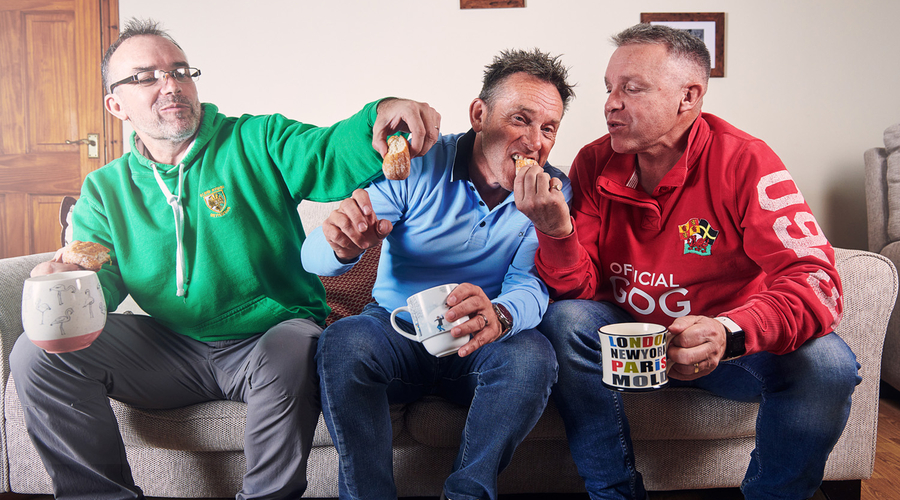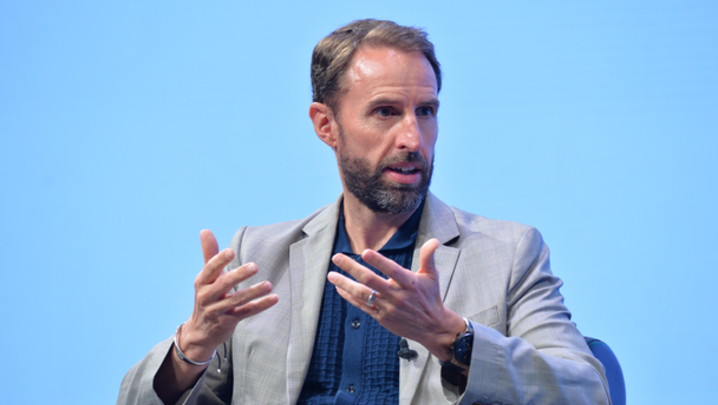As Wales prepares to launch its World Cup campaign, the broadcaster’s CEO, Siân Doyle, talks to Steve Clarke.
When Wales play their opening World Cup game in Qatar later this month, few supporters will be cheering on the national team as fervently as Siân Doyle, the Chief Executive of S4C. She needs no reminding of the campaign’s significance to the Welsh-language channel, which, in a happy coincidence, celebrated its 40th anniversary on 1 November.
“For us, the World Cup is enormous,” she says with palpable enthusiasm. “S4C is the home of Welsh football, so qualifying for the first time in 64 years represents a huge opportunity for us to be on the global stage. It’s being trailed as the biggest event in Wales – ever.”
A special lineup of documentaries, music, entertainment and current affairs shows is being scheduled to complement the football. As well as being shown on S4C, this content will also be available on S4C Clic and BBC iPlayer, with a range of shorter-form content on YouTube and across social media platforms.
On 20 November, the eve of Wales’ opening game with the USA, S4C will show a special concert from New York starring such Welsh luminaries as Bryn Terfel and Ioan Gruffudd. Expect Times Square to turn red.
Alongside drama – S4C enjoys a global reputation for its signature Celtic noir crime series – and children’s (S4C’s first programme was SuperTed), sports are a key priority for the CEO as she navigates the next stage in the broadcaster’s evolution.
Doyle, who took over in January, was part of the team who ensured that live, free-to-air men’s football would remain on S4C in the Welsh language until 2024, following a deal with Uefa.
With the World Cup approaching, she sounds ebullient as we chat over Zoom. Earlier in the week, she had attended Channel 4’s own celebratory dinner at London’s V&A to mark its 40th birthday. S4C may be considerably smaller than its more high-profile cousin – when the service launched in 1982, Channel 4 shows were a regular part of its schedule – but, culturally, it is hard to underestimate the role the broadcaster plays in Welsh life.
Doyle, who read history and politics at Cardiff University, where she met her future husband, grew up in a Welsh-speaking family in Wales, so not only did she watch S4C during her formative years, but she had an insider’s view of the struggle to ensure that a Welsh-language TV channel was established.
Her family had campaigned for the creation of a Welsh-language service. Later, when she worked in North America, she would watch S4C to help “keep the Welsh language alive”.
For those unfamiliar with the history of what became S4C, it is worth recalling that Margaret Thatcher’s administration, despite previously promising a Welsh-speaking TV channel, decided to drop the idea. The then Prime Minister only took it up again thanks to a campaign of civil disobedience that extended to attacks on transmitters in the Welsh-speaking heartlands and a threatened hunger strike by former Plaid Cymru President Gwynfor Evans.
Today, in the very different atmosphere of a devolved Wales, it is estimated that 29.5% of the population – about 892,000 people – are Welsh speakers; the target is to have 1 million by 2050. S4C is crucial to achieving this. Its dedication to children’s programmes, especially those for pre-schoolers, has been and continues to be vital in encouraging the spread of the Welsh language.
Running S4C is Doyle’s first job in broadcasting and follows a 25-year career as a high-flyer in retail, initially at Asda in Leeds, where she worked as a buyer, and running stores for such supermarket luminaries as Archie Norman and Allan Leighton.
The closest she came to broadcasting was when she ran the retail division of the telecoms company Rogers Communications in Canada, overseeing 800 shops, before moving to the US to do a similar job for Comcast at the time the company was taking over NBCUniversal. As senior vice-president of Comcast Cable, Doyle built a chain of retail stores and set up an e-commerce business.
On returning to the UK, she initially did some consultancy work, then took a job as head of TalkTalk’s consumer operation. She accepted a severance package when the company was sold to a private equity group.
The idea was to live in Wales and retire. Her friends, she recalls, were sceptical: “They all said, ‘There’s no way you’re ready to retire.’”
When she was first approached about the S4C job, Doyle was reluctant. For a start, she had never done business in Welsh and had no TV experience. But, as she thought about the job description, she began to realise that her career had given her the skillset for which the S4C board was looking.
“Of course, I was flattered to be approached,” Doyle says. “S4C is an amazing organisation… The more I thought about it, I realised that, at S4C, you need to create something audiences want. I’d done that with customers at supermarkets and telecoms companies.
“People are just consuming in a different way. I tried to keep it as simple as that in my head. I thought: ‘I’ll have to work with the right people, who understand about making programmes but, at the end of the day, I do understand quite a bit about digital and data…’ It took me a while to convince myself to apply because you don’t want to fail.”
At S4C, Doyle has hit the ground running. She has reshaped her commissioning team, hired fresh talent (BBC One Final Score host Jason Mohammad will be fronting a documentary in Qatar and an international co-production, Stadiymau’r Byd/Stadiums of the World), and focused on a new platform strategy to reach those elusive younger audiences with what she describes as “bold commissions”.
Dal y Mellt/Catch the Lightning, a new heist drama, has attracted interest internationally, and a second series of Yr Amgueddfa will drop as a box set on Boxing Day (series 1 was sold to BritBox US and Canada and AXN in Japan). The recently launched Gogglebocs Cymru has been a big success, bringing a distinctive Welsh flavour to the format.
There is also the previously mentioned football deal and the fanfare around the World Cup.
“A lot of the work has been about setting out what our priorities are,” Doyle explains. “Once you know what your priorities are, it’s a lot easier to mobilise around that.
“We’re in a world where the landscape is changing so fast. My predecessor, Owen Evans, secured a financial settlement from the Government that meant we could start moving our digital agenda. You’ve no choice in that because that’s where your audience is. We’ve got to ensure we are meeting that with the right platforms.”
And if Wales makes it through to the knockout stages of the World Cup, Siân Doyle is unlikely to stop celebrating until the New Year.



